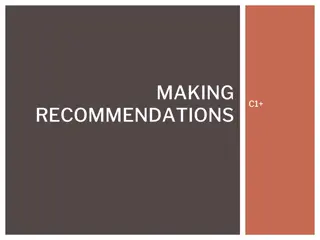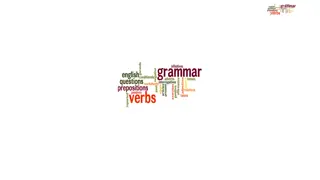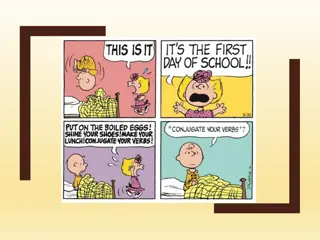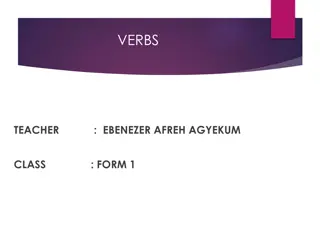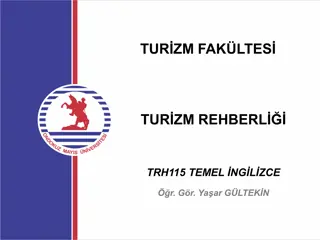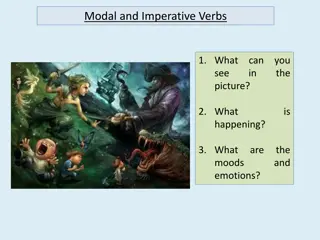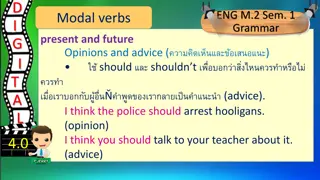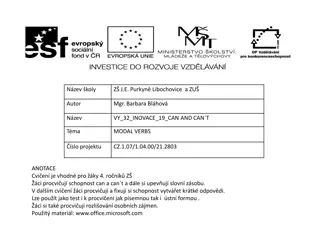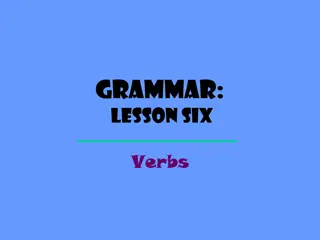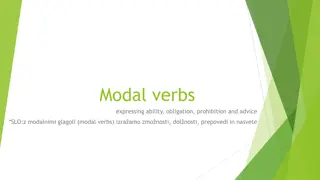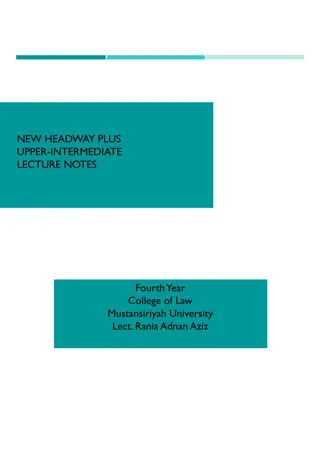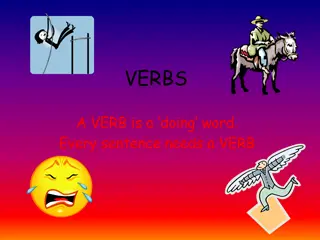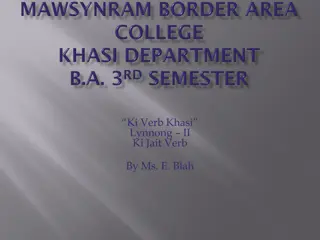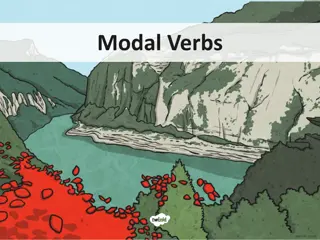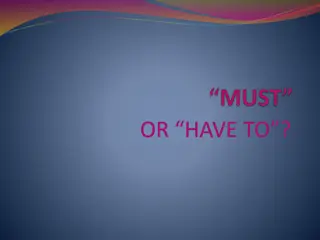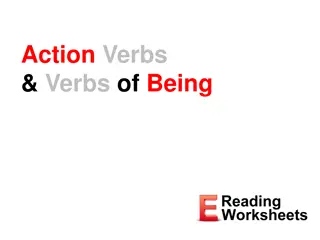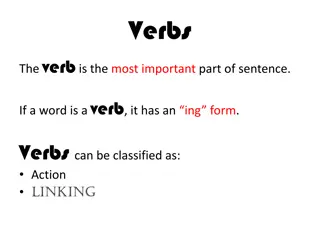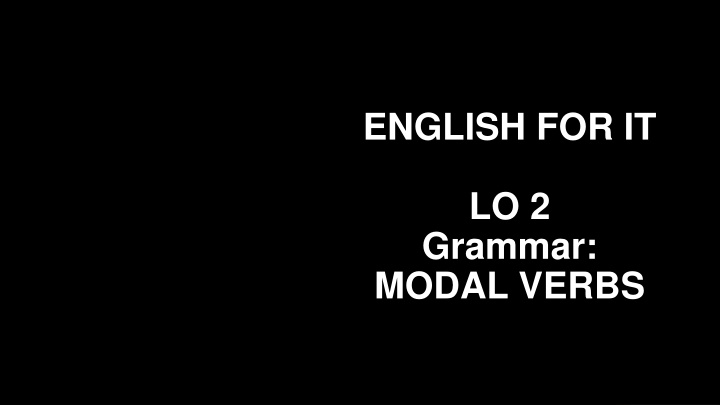
Modal Verbs in English Grammar
Learn about the types of verbs in English grammar, including main verbs, linking verbs, auxiliary verbs, and modal verbs. Explore how modal verbs express necessity, obligation, advice, permission, and certainty through examples and explanations.
Download Presentation

Please find below an Image/Link to download the presentation.
The content on the website is provided AS IS for your information and personal use only. It may not be sold, licensed, or shared on other websites without obtaining consent from the author. If you encounter any issues during the download, it is possible that the publisher has removed the file from their server.
You are allowed to download the files provided on this website for personal or commercial use, subject to the condition that they are used lawfully. All files are the property of their respective owners.
The content on the website is provided AS IS for your information and personal use only. It may not be sold, licensed, or shared on other websites without obtaining consent from the author.
E N D
Presentation Transcript
ENGLISH FOR IT LO 2 Grammar: MODAL VERBS
TYPES OF VERBS There are 4 types of verbs: 1.Main verbs A main verb expresses an action, event, or state (e.g. play, run, learn, swim, go, be, have, do). 2.Linking verbs (copular verbs) A type of verb that describes the subject of a sentence (e.g. seem, be, become, appear, taste) 3.Auxiliary verbs Also known as helper verbs, these work alongside a main verb to express different tenses and grammatical moods. Only three: be, have & do. 4.Modal verbs These help us express possibility, intent, ability, or necessity.
MODAL VERBS Modal verbs are a type of auxiliary verbs which are verbs that cannot be used on their own. They need to be accompanied by another (main) verb. Sometimes modal verbs are called modal auxiliaries.
NECESSITY MUST when the speaker feels the necessity I must go on a diet. I m getting overweight. HAVE (GOT) TO when the necessity is outside the speaker I have to go on a diet. The doctor has told me to. NEEDN T lack of necessity is felt by the speaker You needn t take me to the station. I can walk. DON T HAVE TO it results from the situation You don t have to take me to the station. Mary is giving me a lift. MUSTN T we use it to tell someone NOT TO DO something Student s must not use dictionaries in the examination.
OBLIGATION AND ADVICE SHOULD & OUGHT TO to say what is the right thing or the best thing to do They should/ought to build more hospitals. HAD BETTER to say what is the best thing to do in a particular situation (stronger than should!) You re ill. You had better see a doctor. BE SUPPOSED TO what people expect to happen because it is the normal way of doing things This jacket is supposed to have been cleaned, but it looks dirty.
PERMISSION GIVING PERMISSION = CAN or MAY Any person over 18 years may/can apply to join the club. REFUSING PERMISSION = CANNOT/ CAN T or MAY NOT Customers cannot/may not bring their own food into this caf . ASKING PERMISSION = CAN, COULD or MAY Can/Could/May I take your umbrella? THE PERMISSION DOES NOT DEPEND ON THE SPEAKER = BE ALLOWED TO Are we allowed to leave early?
CERTAINTY WILL expresses a prediction There s someone at the door. It ll be the postman. MUST speaker sees something as logically true CAN T speaker sees something as logically impossible The bill can t be so much. There must be some mistake.
PROBABILITY SHOULD & OUGHT TO We should know / ought to know the result soon. They should have / ought to have our letter by now.
POSSIBILITY MAY & MIGHT This old picture may / might be valuable. That may not / might not be a bad idea. CAN & COULD We can / could have a party. If we re short of money, I can / could sell my jewellery.
ABILITY CAN (present) Can you play the piano? COULD (past) Nicola could play chess when he was six. BE ABLE TO (future) Great news! I will be able to come to your party after all!
Online practice resources https://www.callanschool.info/images/noticias_pdf/primary- auxiliaries.pdf https://test-english.com/grammar-points/b1/modal-verbs-of- deduction/ https://test-english.com/grammar-points/b1/have-to-must- should/ https://www.english-grammar.at/online_exercises/modal- verbs/m016.htm


